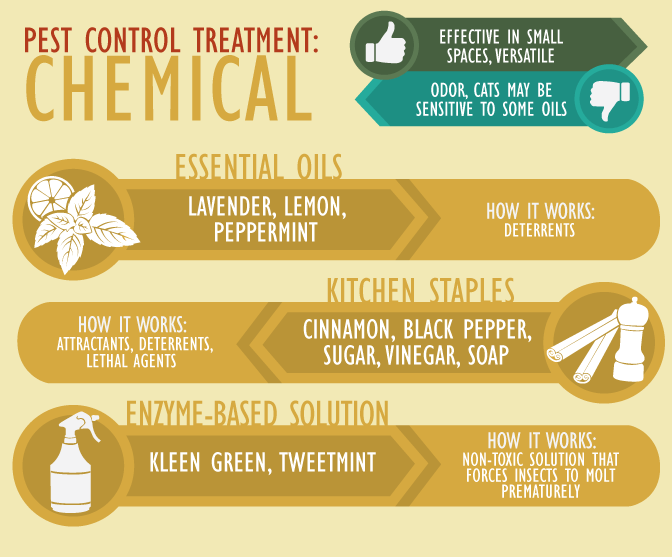Beyond The Spray: Exploring Advanced Techniques Utilized By Parasite Control Experts
Beyond The Spray: Exploring Advanced Techniques Utilized By Parasite Control Experts
Blog Article
Writer-Camp Gaarde
Are you tired of counting solely on sprays to deal with parasites in your house or workplace? While sprays can work, pest control professionals have developed advanced techniques that exceed simply splashing chemicals.
yard bug killer offer a lot more effective and resilient remedies, but also concentrate on decreasing making use of dangerous pesticides. By checking out these advanced methods, you will discover a whole new globe of bug control approaches that are not only efficient, however likewise eco-friendly.
So, are you ready to take your insect control game to the following degree?
Integrated Bug Management (IPM)
If you're seeking a reliable and environmentally-friendly strategy to pest control, Integrated Insect Administration (IPM) is the service you require. IPM concentrates on lasting prevention and management of bugs, rather than merely counting on pesticides. This strategy considers the certain requirements and actions of insects, in addition to the surrounding environment.
By using a combination of strategies such as organic control, environment control, and targeted chemical use, IPM aims to decrease the dependence on chemical therapies and lessen damage to non-target organisms.
One essential facet of IPM is checking and determining pests properly. This entails on a regular basis examining and examining the pest populace, as well as determining the specific varieties existing. By comprehending the biology and actions of pests, pest control experts can develop targeted approaches to interrupt their life process and minimize their numbers.
Another crucial component of IPM is utilizing non-chemical control techniques whenever possible. This can consist of physical obstacles, such as setting up screens or securing fractures and openings, to prevent bugs from getting in structures. In addition, social practices, like correct cleanliness and waste monitoring, can assist get rid of parasite food sources and breeding grounds.
When chemicals are necessary, IPM concentrates on using them sensibly and as a last option. This means picking the least poisonous and most reliable choice, applying it precisely and only to affected locations, and following all safety and security guidelines. By lessening pesticide use, IPM lowers the possible dangers to human wellness and the setting.
Biological Control
To even more enhance the efficiency of Integrated Parasite Monitoring (IPM), the next subtopic we'll check out is the approach of biological control. This method utilizes all-natural predators or bloodsuckers to manage parasites.
Below are 4 essential elements of biological control:.
1. https://how-much-does-simon-keys73951.techionblog.com/25854171/taking-care-of-termite-infestations-getting-understanding-into-the-threat-and-readily-available-solutions of all-natural enemies: In this method, advantageous insects or organisms are presented to the area infested with pests. These natural opponents take advantage of the bugs, aiding to decrease their populace.
2. Conservation of all-natural enemies: Rather than presenting new organisms, this approach focuses on creating an appropriate setting for existing advantageous pests. This can be attained with giving food, shelter, and water sources.
3. Enhancement: Right here, the variety of all-natural enemies is boosted synthetically by breeding and launching them right into the ravaged location. This assists to quickly lower the pest populace.
4. Push-pull strategy: This method incorporates repellents and attractants to manipulate the behavior of insects. Repellents push pests away from crops, while attractants entice them in the direction of catch plants or locations where they can be quickly controlled.
Habitat Adjustment
Environment modification plays an essential role in parasite control by changing the setting to prevent parasite invasions. By making click the up coming web page to the physical attributes of a room, you can create an inhospitable environment for insects, making it harder for them to make it through and grow.
One common approach of environment alteration is removing or reducing possible food resources for pests. This can include appropriate waste management, securing containers, and tidying up food crumbs.
In addition, eliminating or minimizing areas of standing water can help manage bugs like insects.
Transforming the landscape by trimming trees and hedges away from structures can also protect against bugs from accessing your building.
Conclusion.
So there you have it - the innovative techniques used by insect control specialists surpass simply spraying chemicals. Integrated Parasite Administration (IPM) integrates different methods to properly regulate insects, while organic control harnesses natural adversaries to keep bug populations in check.
Environment adjustment likewise plays a vital function in protecting against pest infestations.
Did you know that according to a study, executing IPM methods lowered pesticide use by an average of 71%? This not just shields our wellness and the environment but likewise saves money over time.
